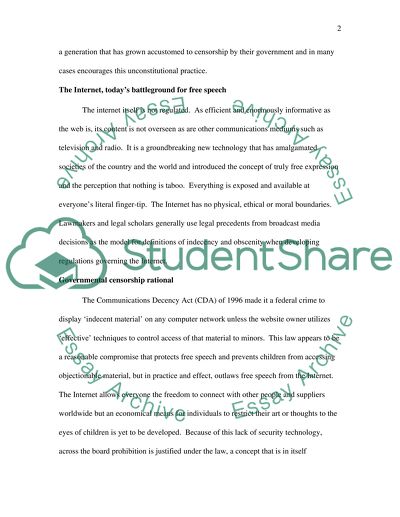Cite this document
(“Freedom of Speech on the Internet Research Paper”, n.d.)
Retrieved from https://studentshare.org/technology/1516815-freedom-of-speech-on-the-internet
Retrieved from https://studentshare.org/technology/1516815-freedom-of-speech-on-the-internet
(Freedom of Speech on the Internet Research Paper)
https://studentshare.org/technology/1516815-freedom-of-speech-on-the-internet.
https://studentshare.org/technology/1516815-freedom-of-speech-on-the-internet.
“Freedom of Speech on the Internet Research Paper”, n.d. https://studentshare.org/technology/1516815-freedom-of-speech-on-the-internet.


